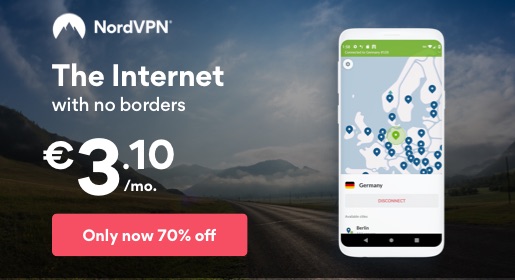Munich is a city of history and tradition, but is also Germany’s economic powerhouse.
While Berlin may attract alternative and creative types, Munich is a magnet for professionals who want to combine career advancement with a beautiful, clean city, low crime rate, fantastic quality of life and easy access to stunning mountain scenery right on the doorstep.
Prettier than Frankfurt and Berlin, and with much better weather and geographical location than Hamburg, it’s easy to see why Munich is such a popular destination for expats.
Note that this article focuses on finding part time or full time work through a German employer. Though self-employment, or working from home doing something like teaching online are options, they aren’t covered by the scope of this article. Given that English-speaking work is hard to come by, and usually requires some specialisation, we also don’t cover low salary, entry-level jobs.
Finding English speaking jobs in Munich is tough, but not impossible
Bavaria is often referred to as the Texas of Germany, and this certainly has some truth to it in many ways.
Prosperous, traditional and independent thinking, with a rich history, Bavaria is Germany’s most conservative state and is culturally more aligned to Austria in many ways than it is to the cities of northern and western Germany.
Living and working in its capital, Munich, is a great choice for those who want to combine an outdoors lifestyle, pleasant climate and a huge array of international companies to choose from to advance their career. It’s really where traditions rub shoulders with world-beating, cutting edge engineering.
Munich is Germany’s richest city in terms of GDP per capita and has one of the lowest unemployment rates, not only in Germany but in the whole of Europe. For all sense and purposes, an unemployment is effectively zero. That’s the good news.
But it’s not all roses.
Housing costs in Munich are the most expensive in Germany, although one recent study showed that Stuttgart has recently pipped Munich for the title of priciest German metropolis by one of the measures used.
It’s also fair to say that Munich’s conservative slant means it’s not as easy to find an English speaking job in Munich as it is, say, for jobseekers who are looking in Berlin.
Frankfurt may be Germany’s and continental Europe’s banking capital, but Munich is Germany’s centre for insurance, and is the seat of insurance giant Allianz and reinsurance leader MunichRe. A lot of spin-off industries are also located in the region too. Automotive and engineering giants such as BMW and Siemens are headquartered in the city too.
On the positive side, once you do find a job, it’s likely to pay a lot better than the equivalent position in Berlin, due to Munich’s shortage of skilled, qualified professionals in many industries.
Also, what many expats don’t know is that Munich is second only to Berlin with the size and breadth of its startup scene. It’s just dwarfed by the other, more well known employers in the city, whereas in Berlin it tends to be front and centre.
Be resilient, grow and cultivate your network
So, if your German’s not yet up to scratch to write your applications and hold your own in interviews, Munich may initially prove to be a hard nut to crack.
As you’ll discover, the key to being successful in finding a job in Munich is all about growing and cultivating a network, and reaching out to people both on- and offline to find opportunities through word of mouth.
Munich plays host to a huge expat community. Unlike Berlin, where the expat scene tends to be more dominated by freelancers, creatives and tech workers, expats in Munich are more likely to be skilled professionals in corporate jobs.
What does that mean? Well, firstly, they all found jobs…and secondly, inevitably some of them will be hiring managers and they will be less insistent on fluency in German for one of their team members.
Building up a professional network, going to meet-ups and reaching out to Munich-based expats on LinkedIn who work for companies you’d like to target, are all great strategies to pour some fuel onto your search to find English speaking jobs in Munich.
Being a major tech hub too means that some of the traditional obstacles of finding a job in Germany don’t apply, or are less relevant, to the Munich startup scene. Startup founders and technology related businesses are in general younger, more dynamic and less risk-averse than German industry as a whole.
There are more “back-end” roles in the tech industry. It can be reasonably argued that fluency in German is not an absolute must-have to perform these roles. Anything requiring intensive contact with German-speaking customers or vendors, on the other hand, will inevitably require German language skills to some extent.
Many CEOs of young tech startups are themselves foreign nationals and thus are much more amenable to hiring non-German speakers. Often, the day-to-day language in the office, unofficially, is English, even though there are a decent amount of Germans working for the company.
Don’t shoot yourself in the foot with your CV and cover letter
Sending a CV in an international format will be the express lane to it landing in the trash. You’ll still need to submit your application in the preferred format for German recruiters. That also includes a cover letter setting out why you believe you’re the right applicant for the position.
What if I told you that this will make or break your chances of finding a job in Munich, so getting it right is a must.
Most people don’t realise just how important this is and fail to adjust their applications to reflect the culture of recruiters in Germany. Just imagine if you were 10x more likely than your fellow job seekers of being invited to interview. You’d take that, right?
We can help you put your CV into the German style. Not only that, we will also ghost write or mentor you to write a killer cover letter to stand out from the unimaginative crowd.
But first of all, you need some companies to actually apply to!
So, let’s help direct you to some warm leads, to get you off to the races with your job search.
The quickest way to get frustrated is by using what I call the “hottest girl in high school” strategy: Are you chasing after the most popular jobs or companies, where they only hire the very best A players and have the pick of the crop?
Job Seekers - Boost your chances of success!

Looking for a job in Germany?
You need to have a stellar CV, cover letter and optimised LinkedIn profile.
Your international format CV won't cut it. Cover letters in Germany are also an art.
Our templates and my coaching for job seekers like you will help you to get more interviews!
Where to start with your Job Search
For more general tips on the top job portals in Germany and strategies to find English speaking jobs in Munich, definitely also check out our article on finding English speaking jobs in Germany in general. You can also download the article as a free PDF ebook.
But let’s take a look at Munich specifically. These articles and directories all provide some great ideas to get that Google sheet filled full of potential opportunities that can be followed up.
Munich’s top 100 employers
Categorised by number of employees in the city, as opposed to market capitalisation or turnover. Whether or not they hire in English is another question entirely. Just research and reach out to the ones that look interesting to you or are hiring for positions which align to your expertise.
Most attractive employers in Munich
Statista have put together a report on the most attractive employers in Munich, based on several criteria including career development potential, social engagement and economic impact on the region.
Münchner Merkur
Munich’s local traditional newspaper is the Münchner Merkur, and they have a job ads section. While the vast majority of these jobs will overwhelmingly be in German and aimed at Germans, you may find a diamond amongst the rough. Remember that we’re not following the “hottest girl in high school” strategy, right?
Exporting Companies – Bayern International
Bayern International is a spin-off from the Bavarian state government’s economic and regional development agency. This body is responsible for promoting exports of products made by Bavarian SMEs, as well as inward foreign investment. Their company database is gold if you’re looking for companies which export internationally. Through this, you can filter on your home country for example, so as you can showcase your language skills as an asset to them.
Best employers in Bavaria
The best employers, covering the whole state of Bavaria, as compiled and evaluated by the Great Places To Work company. More innovative companies who treat their employers well are by nature more likely to be open to thinking outside of the box when it comes to their hiring protocol i.e. hiring for skills rather than the ability to speak German.
EU Startups Search – Munich Filter
A Barcelona-based website covering, rather unsurprisingly, the EU startup ecosystem. They have (at the time of writing) over 750 German startups in their database. Be warned though that many of them seem to be in a pretty early stage, either pre-seed or seed, so some of these companies will inevitably fail. I’ve applied a filter to just show those which are headquartered in Berlin, and there are quite a lot of them!
Munich Startup
A portal aimed at wannabe founders but through the articles, it can also give you ideas of where to look to grow your professional network and showcase potential employers who could be interested in your skills.
Seedtable – 100 Startups to Watch
100 Munich Startups to Watch in 2019 is put together by Seedtable and is based on a number of criteria. These are all growing companies in the Munich startup scene and are worth looking into individually to see if they’re hiring or have roles that match your skill set and professional experience.
Map of the Tech Scene in Munich
Honeypot is an agency specialising in recruitment of overseas software developers. Their map of the Munich tech scene is a fantastic resource for anyone seeking a job in tech. It includes 200 relevant companies and contains both startups and more established corporate players.
LinkedIn is gold, and it’s on FIRE!
Are you spending at least an hour a day on LinkedIn? If you’re not, then seriously, take a pause from this article now.
Delete Instagram, Snapchat and Facebook off your phone. Put your time spent in the gym or commuting, or waiting in line for coffee, to more productive use.
Done that? Good!
Now, moving swiftly on…
What many people don’t realise about LinkedIn is that it’s your online CV. You can get in front of endless potential recruiters or people who know someone who is hiring. We’ll be putting a more comprehensive article on LinkedIn strategies together in the near future.
Until then, I’ll leave you with 2 quick tactics.
1. Comment on relevant content from others. It will expand your reach and put your profile in front of people who otherwise wouldn’t have discovered you.
2. Join Groups on LinkedIn. They’re great for networking and LinkedIn allows you to send requests to connect with people who are members of the same Group.
Here are a few LinkedIn Groups which are useful for job seekers based in the Bavarian capital who are searching for English speaking jobs in Munich:
Xing – is it worth it?
For anyone who didn’t know, LinkedIn has a domestic competitor in German-speaking Europe called Xing.
Unless you speak German, Xing is pretty much useless for actual job searching. Even though Xing has English language capability, the content is overwhelmingly German and aimed at users in the DACH (Germany, Austria & Switzerland) region.
However, there are far fewer English speaking job seekers active on Xing, and that’s where you could get one step ahead.
You see, where Xing may come into its own, especially if you have some German friends who can help you with searching the content, is finding potential leads through companies who have a more active presence on Xing than LinkedIn.
While LinkedIn is rapidly catching up, Xing actually has more users in German-speaking Europe than LinkedIn does.
Remember, we’re not chasing the hottest girl (or guy) in high school. Look where others aren’t looking if you want to get ahead.
What’s the catch?
As you can see, there are lots of opportunities in Munich. Thanks to its established industrial base, world class companies, international environment and 2 of Germany’s best universities on its doorstep, Munich’s economy is the country’s engine.
However, there are downsides to every location. These are the 2 biggies for Munich.
1. Once you get outside the city, it’s very old school
While Munich is a modern, forward looking city with a rich tradition, its hinterland is way more conservative. Once you get outside of Munich and its immediate commuter belt, you’re going to struggle looking for jobs in smaller Bavarian municipalities.
If you speak very little German, it’s going to be extremely hard to find a job. Even more so if you’re a non-EU citizen. Swallow the bitter pill of expensive housing and just move to the city, or just accept you’re going to have to commute.
2. Plenty of competition
The city is a very popular location for expats because of all the advantages we’ve mentioned in the article. This inevitably means you’ll have a lot of competition searching for English speaking jobs in Munich. Most new arrivals don’t speak German, so if you’re one of them, then be prepared to network, network, network to get one step ahead of your fellow jobseekers.
Conclusion
Munich’s conservative vibe can initially make it feel hard for non-German jobseekers to get a foothold in the jobs market.
Don’t be discouraged. The opportunities are definitely there.
It just means you need to invest more effort in cultivating your professional network, as opposed to following the more traditional route of seeing a job advertised online or in a newspaper and then sending in your application.
Perseverance will pay off.
Munich’s opportunities in terms of its economic engine and well-established industrial base make it a much more attractive prospect than Berlin in terms of professional development and job openings, unless you’re seeking opportunities in tech industries or the startup scene.
Just make sure that you absolutely prioritise learning German so as you’re not stuck longer term with the first company that hires you.
And definitely get some help with your CV, cover letter and LinkedIn profile to set you on the path to success!










